14 Simple Lifestyle Changes That Melt Away 1 Pound a Week

Losing a pound a week is a sustainable, sensible way to lose weight. "Weight loss to a healthy weight for a person's height can promote health benefits," says Johns Hopkins Health. "These include lower cholesterol and blood sugar levels, lower blood pressure, less stress on bones and joints, and less work for the heart. It is vital to maintain weight loss to obtain health benefits over a lifetime." Here are 14 lifestyle changes to help you burn fat, lose weight, and get fit and healthy.
Go For a Walk

Walking is a highly effective and easy way to encourage weight loss. "Most people think they have to jog, run or embark on other high-intensity exercise in order to lose weight," personal trainer Russ Luber tells The Telegraph. "That isn't the case, and it's why I recommend brisk, daily walking for my clients, all of whom are in their 40s, 50s and 60s. Walking doesn't put strain on muscles, heart or joints, yet you'll still enjoy all the benefits of cardio exercise. Quite simply, it's the simplest and best form of exercise you can do."
How Many Steps?
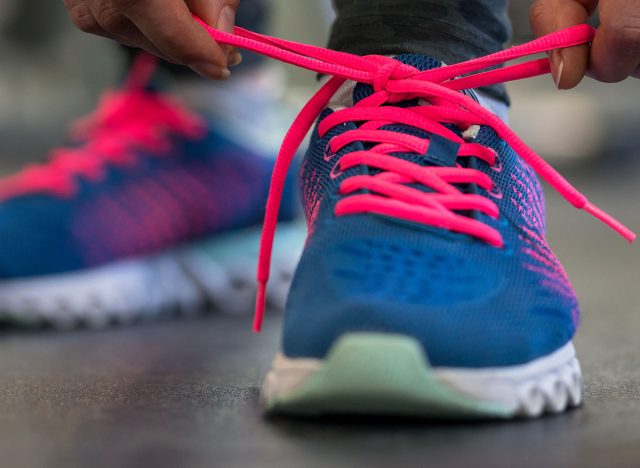
So how many steps should you take? "If you've been pretty sedentary, start by aiming for a relatively low amount like 3-4,000 steps a day," sports scientist Rosaria Barreto-Ellis tells The Telegraph. "If you're more active, figure out your average step count and focus on increasing it as there is always room for improvement. A minimum of 10,000 steps a day is good to aim for."
Call a Friend

Getting support from friends and family can make all the difference on your weight loss journey. "Enlist support from family and friends," says the American Institute for Cancer Research. "Ask them to help and let them know specifically what they can do to support you. If you're still unsure about how much you should be eating or how much weight loss to expect, consider making an appointment with a registered dietitian (RD) in your area for weight-loss counseling."
Eat Enough Food
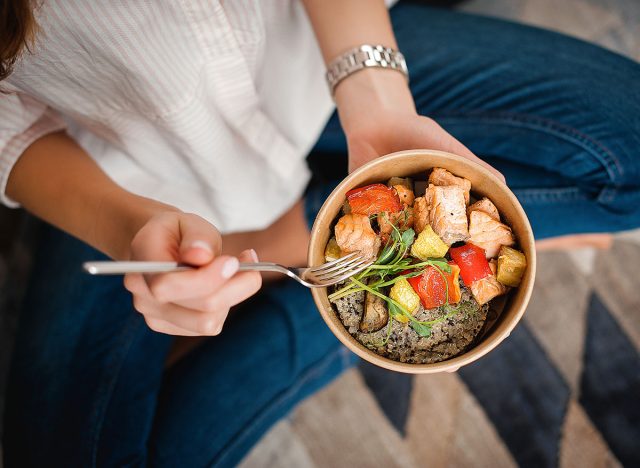
Don't be tempted to go on a crash diet. "You need to replenish those calories that you're losing from exercise. Your body will be begging for them — incessantly," Dr. Griebeler says. "If you don't eat, you're going to be tired, and, therefore, you're not going to be able to keep up all that exercise."
Count Your Calories

Counting calories—or at the least being aware of them—can take the guesswork out of weight loss. "For example, to lose 1 to 2 pounds a week — a rate that experts consider safe — your food consumption should provide 500 to 1,000 calories less than your total weight-maintenance calories," says Harvard Health. "If you need 2,325 calories a day to maintain your current weight, reduce your daily calories to between 1,325 and 1,825."
Drink Plenty of Water

Water helps keep you satiated (sometimes thirst is confused for hunger). You can get water from unsweetened tea, and also high-water foods like watermelon. Just stay hydrated!
Eat More Fiber
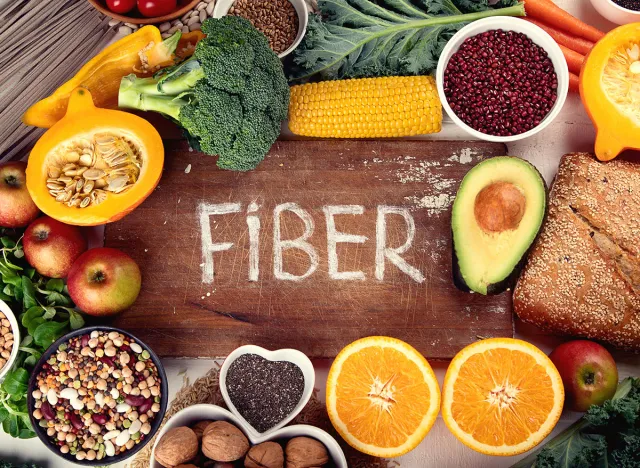
"In addition to weight control, higher fiber diets can also help to prevent type 2 diabetes and cardiovascular disease," says Dr. Frank Hu, professor of medicine at Harvard Medical School and professor of nutrition and epidemiology at the Harvard School of Public Health. Get your fiber from food over supplements as much as possible.
Get Moving
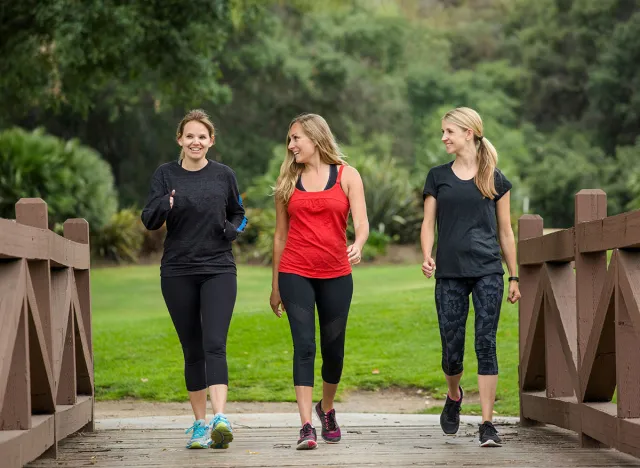
Exercise is important for your mood and weight loss. "The more you exercise, the more calories you'll burn," explains Corewell Health. "If you're trying to lose weight, you should aim for doing cardio at least five days per week for a total of at least 250 minutes (4 hours, 10 minutes) each week."
RELATED: Lose 30 Pounds in 60 Days with These 5 Simple Plyometric Moves
Avoid Added Sugars
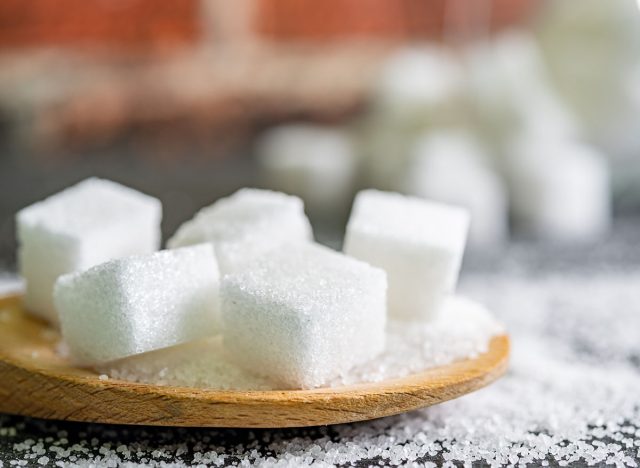
Added sugars are not good for you, and can undermine your weight loss. "Eating or drinking too much added sugar contributes to excessive calories with no vital nutrients," says UC Davis Health. "This can make it harder to maintain healthy eating habits. Replace soda and juice with healthier options like low-fat milk, carbonated water, or unsweetened iced tea."
Go To Bed

Getting good quality sleep is essential for health, wellness, and weight loss. "Over the years, we and others have shown that sleep restriction has an effect on appetite regulation that leads to increased food intake, and thus puts you at risk for weight gain over time," Esra Tasali, MD, tells UChicago Medicine.
Stay Positive

Don't feel bad if you have setbacks. "A temporary return to old habits does not mean failure," says Johns Hopkins Health. Paying attention to dietary choices and exercise can help maintain weight loss. Identifying situations, such as negative moods and interpersonal difficulties, and using alternative methods of coping with such situations rather than eating can prevent returning to old habits."
Take a Hike

Walking uphill burns even more calories. "Try to vary the intensity," physiotherapist Esther Fox, PhD, tells The Telegraph. "Walk fast for half an hour and add in some hills if you can. As well as benefiting cardiovascular function, you'll also be producing endorphins and boosting your mental health, while increasing muscle density and improving your balance and coordination. For extra motivation I recommend using your phone or something like a Fitbit or Apple Watch to track your steps every day."
Adjust Your Calories
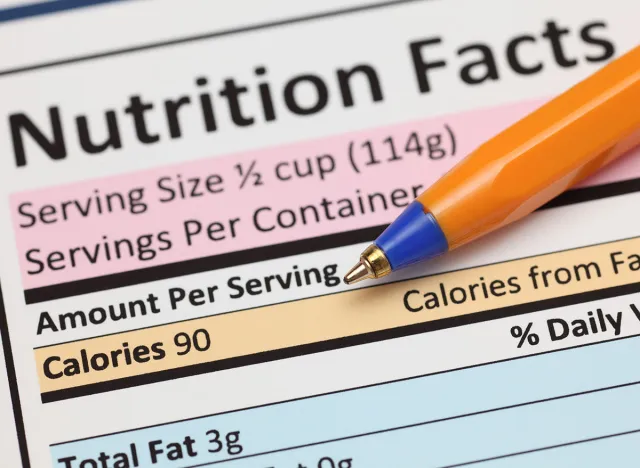
Your body needs fewer calories as you lose weight. "If you continue to eat the same amount that helped you lose those first few pounds, your weight loss will naturally slow because your calorie deficit will get smaller as your weight goes down," says the American Institute for Cancer Research. "This can be discouraging, but by setting realistic expectations, being patient and combining physical activity with eating less, you can be successful."
RELATED: 15 Walking Routines to Lose 30 Pounds in 90 Days
Lift Weights

Lifting weights can help burn fat and boost metabolism. "If you're building muscle, you'll be burning fat, even though your weight is the same or even if it goes up a bit," endocrinologist and obesity specialist Marcio Griebeler, MD, tells the Cleveland Clinic. "If you have more muscle, I can guarantee you your metabolic rate is up and you're burning fat. And you'll be overall healthier, regardless of whether you've hit that weight number that you're looking for." And if you enjoyed this article, don't miss 12-3-30 Walking Method: 20 Proven Tips to Lose Weight Faster.




